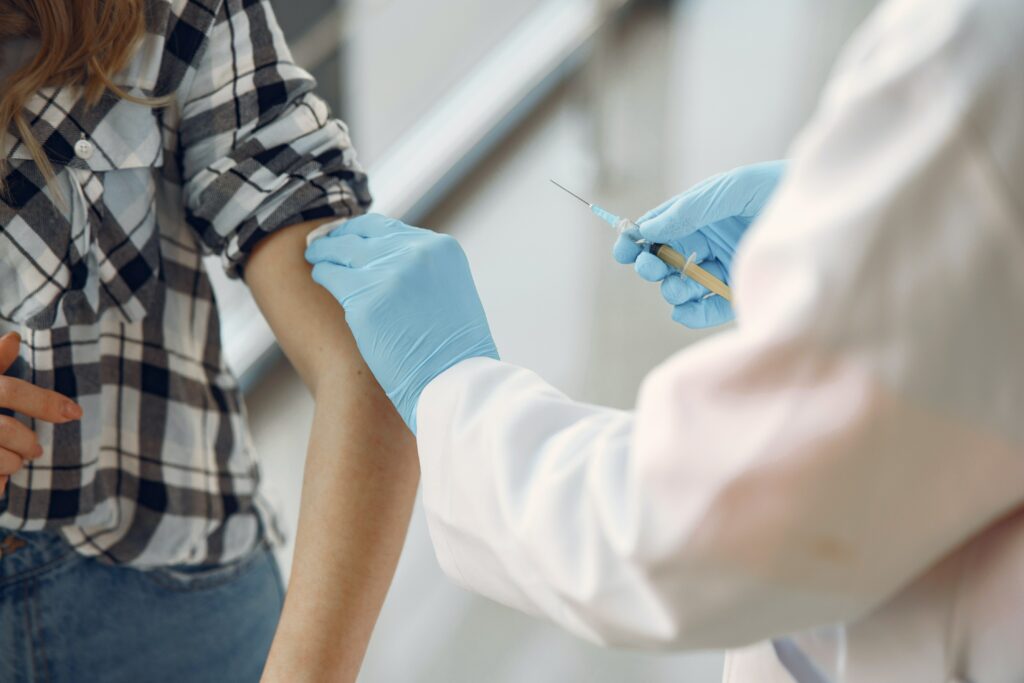 As Certified Breastfeeding Counselors (CBC) it is important to remember we cannot provide medical advice. However, we can provide information, resources, and refer to the appropriate professionals when asked questions. Many clients ask their CBC for information about breastfeeding and illness, medications, etc.
As Certified Breastfeeding Counselors (CBC) it is important to remember we cannot provide medical advice. However, we can provide information, resources, and refer to the appropriate professionals when asked questions. Many clients ask their CBC for information about breastfeeding and illness, medications, etc.
Given the times, questions about the Covid-19 vaccine and breastfeeding are common. We cannot provide answers such as whether one should or should not get the vaccine. We can say what the evidence currently says, we can direct them back to their provider, we can show them some resources. We can encourage clients to make informed decisions while never telling them what they should or should not do.
It is also important to be truly clear about personal opinion, anecdotes, and evidence. Each have a place in discussions, but as professionals we need to provide, and highlight evidenced based information.
Covid-19 and Breastfeeding
Covid-19 hit the world quite hard in the spring of 2020 leaving many to wonder about its impact during pregnancy and lactation. While long term research takes time, we do know that breastfeeding during Covid-19, like the majority of illnesses, is safe.
The current recommendation from the World Health Organization (WHO) says:
“WHO recommends that mothers with suspected or confirmed COVID-19 should be encouraged to initiate or continue to breastfeed. Mothers should be counselled that the benefits of breastfeeding substantially outweigh the potential risks for transmission.
Mother and infant should be enabled to remain together while rooming-in throughout the day and night and to practice skin-to-skin contact, including kangaroo mother care, especially immediately after birth and during establishment of breastfeeding, whether they or their infants have suspected or confirmed COVID-19.”
What Is The Covid-19 Vaccine?
Depending on where you are located, there may be one or several available vaccines. Each uses slightly different ingredients, and some use different types of vaccine base. All have the same goal to elicit an immune system response to trigger the creation antibodies.
As a doula, you do not need to know each type of vaccine and how it works in order to help your clients. You can direct them to a reputable source to know which vaccines are available to them.
Common ones in the US include Pfizer, Moderna, and Johnson and Johnson. Pfizer and Moderna both use mRNA for the vaccine. Johnson and Johnson uses a more traditional vaccine base.
While mRNA is a newer technology, it is not new and was studied before Covid-19.
Does The Covid-19 Vaccine Pass Through Breastmilk?
A major concern many lactating individuals have is whether or not the Covid-19 vaccine is excreted into breastmilk. After all, there are some medications deemed unsafe during lactation as it could create side effects in baby. However, many medications are safe as little to no components of some medications are excreted.
Without studies, many wondered if the vaccine was safe. Fortunately, Kathryn Gray, a maternal–fetal medicine specialist at Brigham and Women’s Hospital in Boston, Massachusetts, and her colleagues studied the vaccine during lactation.
In a small study, her team looked at breast milk samples from six participants up to two days after they received the Pfizer–BioNTech or Moderna vaccine and found no trace of the mRNA in either case. While this was a small study, it is reassuring that there is not a contradiction between lactation and the Covid-19 vaccine.
Should Breastfeeding Mothers Get The Covid-19 Vaccines
Whether or not to receive any vaccines while pregnant or lactating is a personal decision and one a client should make with their provider. As a CBC, you can help provide information and stats, but you cannot recommend they do or do not get vaccinated.
Evidence supports the vaccine as likely safe and those who desire the vaccine should have access to it. There is also no evidence to show a mother needs to pump and dump following the vaccine. Neither is there evidence of risk to baby as the vaccine’s ingredients are not found in excreted breast milk. There’s also not a possibility of contracting the virus from the Covid-19 vaccine, unlike a few other vaccines which are live viruses.
Gray and her team recruited 131 participants who were about to be vaccinated who were lactating, pregnant, or neither (control). They found lactating individuals generated the same response as those who were not lactating. In short, lactating did not reduce the effectiveness of the vaccine.
Based on short term, current evidence, if a lactating individual desires a Covid-19 vaccines, they should have access to it. They do not need to pump and dump, and there are no currently known risks to the breastfeeding child.
Whether or not one chooses to get the Covid-19 vaccines while lactating, however, is a personal choice. As a CBC, you can share this information and encourage your clients to speak with their healthcare provider.